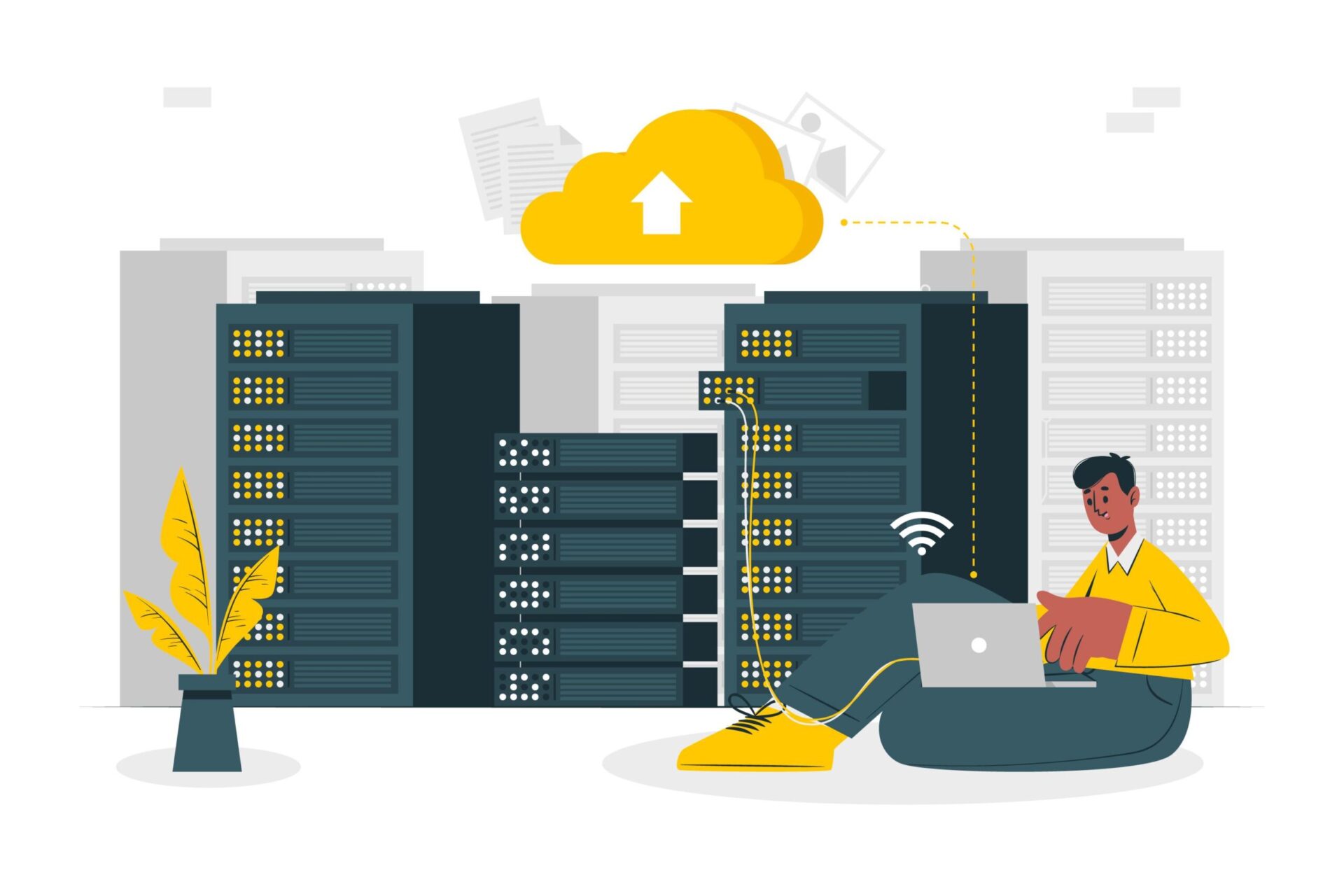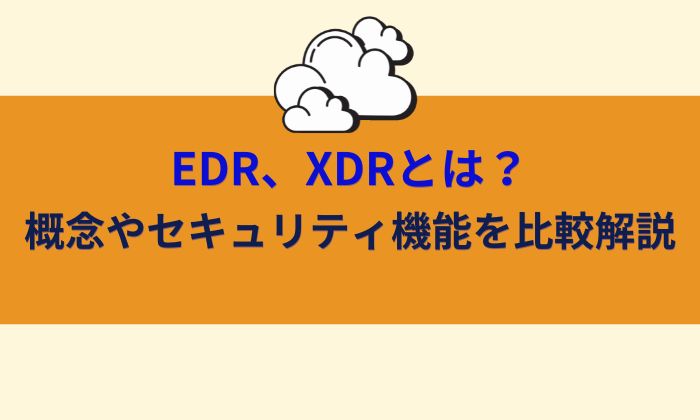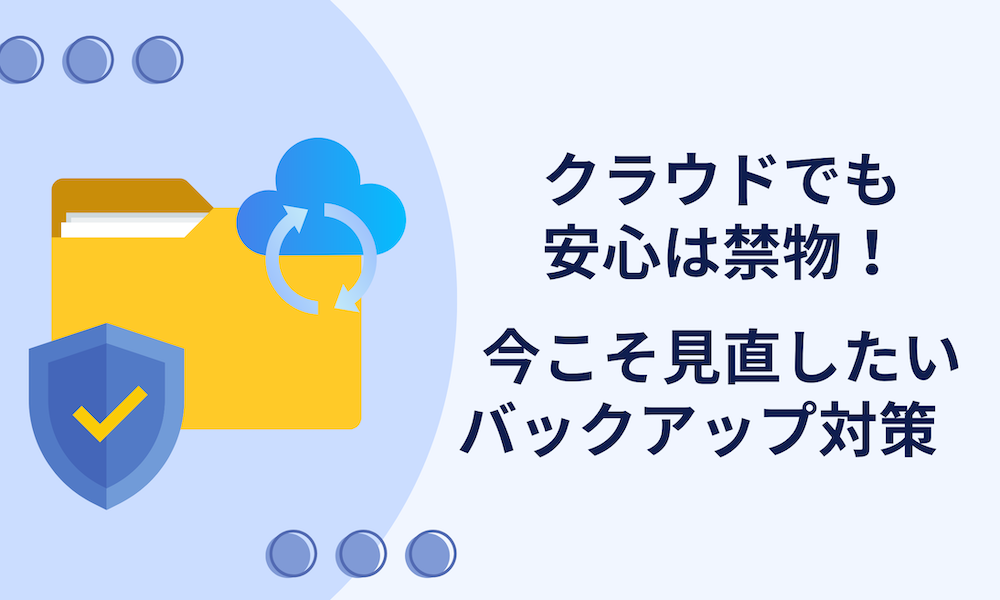File servers are a convenient way to share files and data within a company. Recently, more and more companies are transitioning from the traditional "on-premise" servers to the "cloud" servers.
Reasons to move your file server to the cloud

Clearly, traditional on-premise file servers can have issues and disadvantages that make them a poor fit for the way we work in this day and age. So, what are the benefits of moving to the cloud, an increasingly attractive alternative?
Great for remote work and external collaboration
Cloud-based file servers allow file access via the Internet, so they can be easily used for remote work outside the office. Of course, smartphone access is also a breeze. And with just a few simple settings, you can easily and safely share specific files with people outside the office.
Cloud backup as a BCP measure
After converting your file server to the cloud, your files will always be backed up to the cloud's secure server. Even if a computer in your company crashes, you can immediately restore the files and folders with no problems. It is also ideal as part of the BCP measures that are becoming more and more necessary.
Improve cybersecurity with easy permission settings and access log acquisition
With cloud-based file servers, setting permissions are easy to set with just a click. Of course, access permissions can also be changed for each folder or file. Many cloud-based file servers also offer access logging, making it easy to detect suspicious or authorized file access.
Disadvantages of traditional file servers

One reason for the accelerating use of cloud file servers is that the usual on-premise file servers are often not a good match with modern business practices. These disadvantages are becoming more apparent as industries change even more rapidly.
Files cannot be shared outside the company
With file servers that specialize in internal file-sharing, files cannot be easily shared with people outside the company. For this reason, files are often sent as email attachments, a process that is time-consuming and has serious security risks.
Inconvenient for remote work
Accessing files on-premise file servers can be very cumbersome for remote workers, often requiring VPN installation and configuration which can be a challenge for employees to use casually. And thanks to the COVID-19 pandemic, remote work is becoming more and more common. However, on-premise file servers cannot fully support this new way of working.
Limited smartphone access
Accessing on-premise file servers from smartphones and tablets may not be possible, especially for small and medium-sized companies. These challenges can create severe problems with remote work effectiveness, efficiency, and security.
Permission settings are cumbersome
With on-premise file servers, setting detailed permissions requires specialized knowledge and access. This often results in authorization settings, one of the most basic of security measures, being neglected in many businesses.
Important factors when choosing a cloud file server
When thinking about transitioning to a cloud-based file server, considering the following points can avoid unexpected failures and problems later.
Free cloud storage is risky
While there are various free cloud storage services available for personal use, they are not recommended for corporate use. Most of these free services are not secure enough, and in many cases, they lack the necessary business functions. Also, free services have limited capacity, making them impractical for business purposes.
Pay close attention to the pricing and billing systems
When choosing a cloud-based file server for corporate use, be careful about the fee structure. For example, many services charge a basic monthly fee plus an additional fee based on the number of users. In this case, costs may increase if the number of employees increases or changes unexpectedly.
Focus on security measures and technical support
In addition to ease of use and cost, when looking at cloud-based file server services, ask and get solid answers to questions such as "What are your security measures?" and "What technical support systems do you offer?”
A popular cloud-based file server for corporations
“There are too many cloud file server services out there, and I don't know which one to choose!” If you find yourself saying this, we recommend Tsukaeru Filebako, used by many small businesses and educational institutions nationwide!
Same easy-to-use structure as the familiar Windows Explorer
Tsukaeru Filebako interface is exactly the same as the file structure for Windows Explorer, making it easy for new users to quickly master with no need for thick manuals or in-house training.
Complete and comprehensive security measures
Tsukaeru Filebako has been developed with a special focus on security, providing a full range of features such as login history check, access blocking from specific devices, and two-factor authentication. Files are securely stored on Tsukaeru’s own ISO27001 (ISMS) certified servers in Japan, and data transmission is protected by double encryption using the latest SSL communication and secret keys.
Unlimited users at a set price
While many services use a pay-as-you-go pricing system based on the number of users, there is no limit with Tsukaeru Filebako. No matter how many users you add, the fee remains the same. This simple and clear pricing plan with no hidden costs has been well received by existing clients.
If you are still using an on-premise file server, now may be the time to switch to the cloud!
We are currently offering a free trial of Tsukaeru Filebako so you can see how a cloud-based file server can meet and exceed your needs.






















